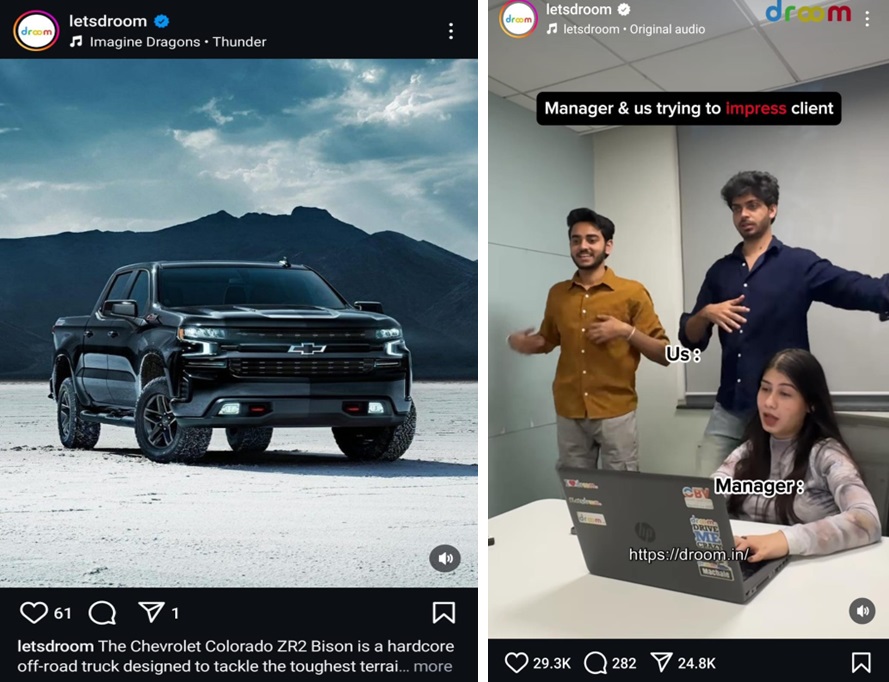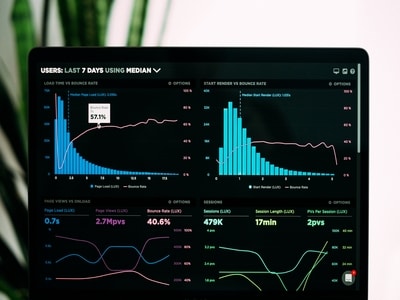People are increasingly bored with traditional content, making it essential for brands to elevate their marketing strategies. In 2025, employee-generated content (EGC) will play a crucial role in social media strategies. The landscape is shifting—consumers no longer engage with regular ads; they seek content that is engaging, humorous, and authentic, inspiring them to purchase from a brand.
To build trust and authenticity, brands must go beyond user-generated content (UGC). Employee-generated content is equally important in today’s market. Studies show that 81% of consumers consider trust essential when making purchasing decisions.
What is EGC content?
EGC stands for Employee-Generated Content. The definition can be: "When employees of a brand create content to promote the brand or its products, it is called EGC."
2025 is all about Employee-Generated Content (EGC) and User-Generated Content (UGC) working side by side. A LinkedIn study found that "employees are the most trusted source of information about a company."
What are the benefits of employee generated content?
Brands are continuously on the hunt for engaging content, as people are bored with outdated ads that no longer excite customers. So, brands are leveraging their employees for employee-generated content, which is created within the office and shares office stories. Here’s how Employee-Generated Content ( EGC) ideas can be highly beneficial.
- Authenticity – A study showed that 76% of individuals trust content shared by employees more than content shared by the brand itself (according to Speakap). Just like User-Generated Content (UGC), Employee-Generated Content (EGC) creates authenticity for your brand.
- Higher Engagement and Extended Reach – When employees create social media content for your brand, it generates higher engagement than regular content. This is because people get a behind-the-scenes look at the company, and employees share their content with their inner circles, leading to greater engagement and reach. A study found that content shared by employees receives 8 times more engagement than content shared through official brand channels. Additionally, employees have 10 times more followers than their company’s social media accounts (according to PostBeyond).
- Enhanced Credibility – Employee-Generated Content (EGC) strengthens a brand’s credibility, making it more trustworthy in the eyes of consumers.
- Increased Consumer Trust – When employees promote their company’s products, it builds trust among consumers. Since employees have inside knowledge of the company and its offerings, their recommendations feel more genuine and credible.
- More Resharing and Positive Brand Perception – Employee-Generated Content gets reshared by employees' friends and family, making it more relatable. It also showcases a positive company culture, as employees collaborate to create content. This, in turn, encourages others to join the company and enhances the brand’s reputation as a great workplace.
- Hidden Talent Exposure – When employees participate in content creation for a brand’s social media marketing, their hidden talents are revealed. This adds value to both the company and the employees, recognizing their creativity and skills.
- Cost-Effective and Sustainable – Employee-Generated Content (EGC) is not only cost-effective but also highly effective, similar to UGC, for social media marketing. It allows brands to track performance, refine their content strategy, and create a sustainable marketing process.
Employee Generated Content Examples
When we talk about any social media trend, it’s also important to know examples of the trend and how effective it has been for other brands. This provides a clear idea of how to create a better social media strategy for your own brand.
So, before leveraging employees into EGC (Employee-Generated Content), it is crucial to understand Employee-Generated Content examples.
-
Faebeauty's Team-Driven Content –
Faebeauty's employees create social media content by swatching their products, showcasing how it looks on different skin tones. They also participate in engaging and popular social media trends, such as the "We Listen and Don't Judge" challenge.
Their EGC content gets 229K views and is shared 760 times, while other content gets an average of 30K views.

-
Droom's Content Strategy –
Droom creates content related to corporate life, which has gained immense popularity on Instagram. Their views and followers have skyrocketed as a result. Employees are not only creating engaging content but also building trust and making the brand image unforgettable.
When they post employee-generated content on their social media platform, they get millions of views. However, when they post about their products, they gets an average of 60 likes.

CONCLUSION
Employee-Generated Content (EGC) is the biggest trend of 2025, taking over social platforms. It’s not only a great content strategy for D2C brands but also highly effective for B2B businesses.
EGC is not just trustworthy—when it comes to sharing information, employees know the brand’s products or services better than anyone because they are deeply involved.
When leveraged properly, the Employee-Generated Content trend can significantly boost sales. Brands can also create a well-planned strategy to promote EGC through ads for even greater impact.
FAQ
What is EGC content?
EGC content refers to Employee-Generated Content, where employees of a brand create content about the brand’s products and services. Just like brands post UGC (User-Generated Content) on social media, EGC helps build trust and authenticity, and drives higher engagement and reach for the brand.
What is the employee generated content trend?
Employee-Generated Content (EGC) in 2025 is a hot trend, just like User-Generated Content (UGC), where employees create content for social media. The type of content varies by brand—some beauty companies showcase how their products look on different employees, while others create funny corporate life stories or participate in trending challenges like "We Listen, We Don't Judge."
Brands are involving their employees to build more credibility and trust for the company.



